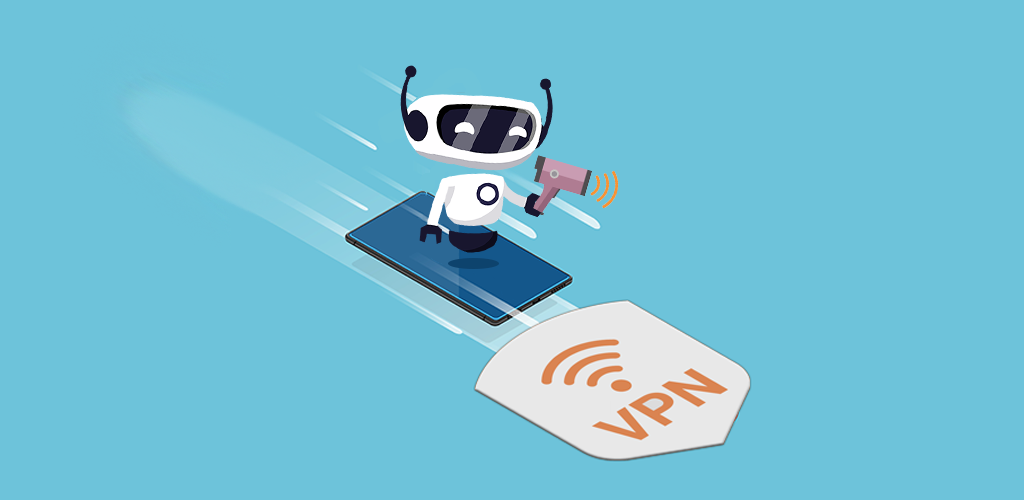October 27, 2020
Privacy Tip of the Week: Test Your VPN Speed
Posted by Rhiannon

Millions of people around the world use virtual private networks as a way of increasing their digital privacy and security. VPNs both encrypt your data so no one can see your activity, and make you anonymous online so no one can trace your activity back to you. Unfortunately, there’s a pervasive notion that VPNs slow your internet speed. In a world where we’re looking for the fastest speed possible, very few are willing to use a tool that reduces it. Thankfully, this idea is mostly a myth. Take a look at why this myth hangs around, why you should use a VPN, and how to test your VPN speed:
- The myth of slow VPNs
- How can I test my VPN speed?
- Why should I use a VPN?
The Myth of Slow VPNs
We’ve established that the idea of VPNs causing slow internet speed is, by and large, a myth. But why did that myth start and why is it still hanging around? At the dawn of VPN technology, the tool very likely did slow internet speed. As with any new technology, it had kinks to work out. Early adopters may have sworn off VPNs forever as a result. However, today, VPN technology has advanced so much that early speed issues are history.
Today, the myth also hangs around because there are VPNs out there that slow internet speed when users connect to them. These services, however, are the outliers rather than the norm. They typically are poorly designed and had very little research and development put into them. In many cases, they’re also free services as well, which may give you a clue as to their quality. As the saying goes, you get what you pay for. If you’re not willing to pay for a good, reputable VPN service, you should expect a subpar one nine times out of ten.
And, of course, even a reputable service has the chance to slow your internet speed, but that’s the nature of connecting to the internet in general. Your internet connection can’t be all speed, all the time. However, if you notice slow speed from your VPN, try connecting to a less busy server, restarting your connection, or waiting a few minutes, before condemning VPN technology altogether.
How Can I Test My VPN Speed?
When you choose a VPN service, knowing your speed is important. If the service you’re using can’t keep up with your activities, you may want to choose another. In addition, if your speed is too slow, your connection may even drop, leaving you exposed to tracking, snoops, and other digital privacy issues. So how do you test your speed? There are plenty of online tools for just that, which can be found with a simple online search. Some popular ones include Speedtest and Fast.
To use these tools, make sure your VPN connection is active then simply follow the instructions on the website. The results should be measured by three metrics; your upload speed, download speed, and ping. The higher the number for your upload speed (how quickly your requests reach the internet) and download speed (how quickly results take to return to your device), the better. In terms of ping (your overall internet speed), you want that number as low as possible.
Why Should I Use a VPN?
There are many reasons for using a VPN. These are some of the most popular:
- VPNs encrypt your data so snoops and websites can’t see or use it for their own purposes.
- They anonymize your activity so none of it can be traced back to you or used to track you.
- If you find yourself locked out of content from another region, a VPN can unlock it for you.
- Businesses that have employees who work remotely can use a VPN to allow them to connect to work servers safely.
Despite some of the rumours surrounding virtual private networks and their speed, a VPN is a crucial tool for good internet security. In fact, in some cases, a VPN can even increase your internet speed by avoiding deliberate speed throttling from your internet service provider. Consider trying HotBot VPN for your digital privacy. You can download it for Windows now from our website or the Play Store and App Store.
Posted by Rhiannon
More Blog Posts
February 14, 2023
How the Investigatory Powers Act Impacts Citizen Privacy
In 2016, the United Kingdom passed the Investigatory Powers Act or IP Act, into law. This act empowered the government and related agencies to access and collect citizen data, without consent. Critics immediately slammed the new law. The media dubbed it the “Snoopers’ Charter.” Meanwhile, Edward Snowden described the act as “the most extreme surveillance […] Read moreFebruary 14, 2023
Review: qBittorrent Torrent Client
If you plan on torrenting files, you need a client with which to do so. There are dozens on the market, some paid, some free. Others are feature-heavy while some have just the basics. A few are recent additions to the market while others have been around nearly as long as torrenting. The qBittorrent torrent […] Read moreFebruary 14, 2023

